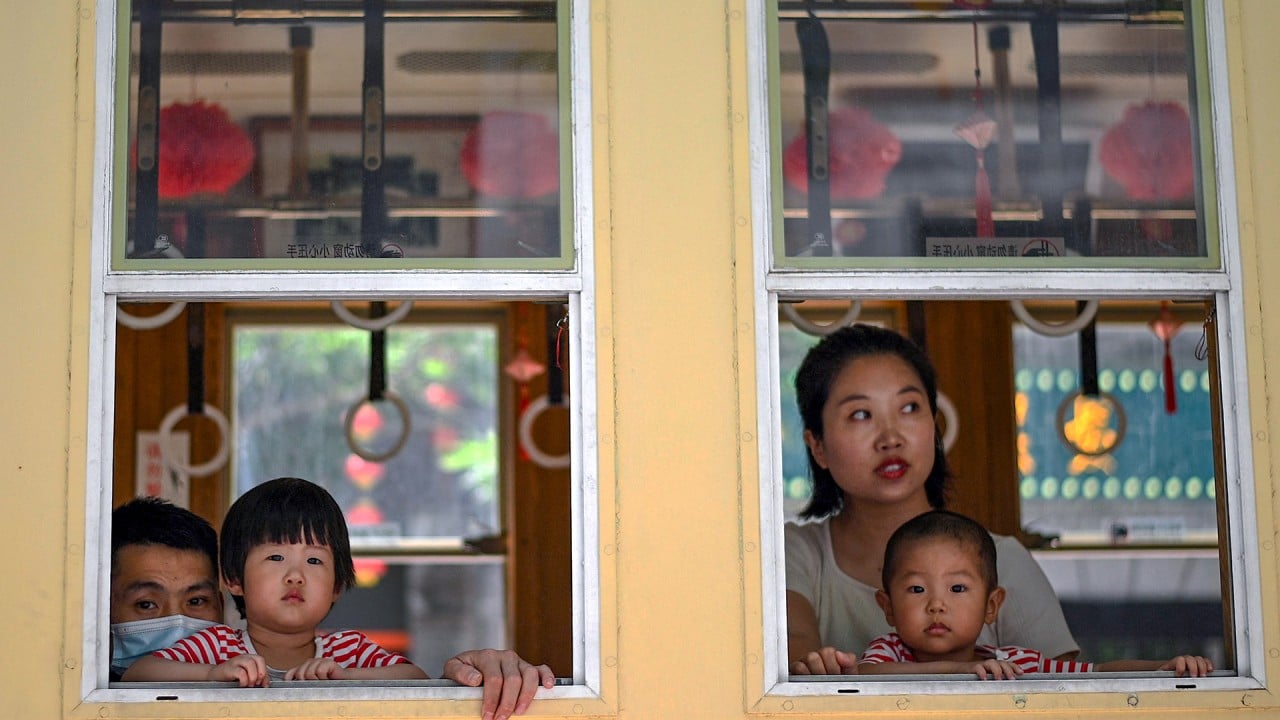
Dreams die young for China’s private tutors as jobs vanish under sudden crackdown
- Once-promising off-campus tutoring industry, which used to employ 10 million, has been left reeling under policy change
- More than 9 million graduates this year put added pressure on the job market, only to find a rewarding option has been taken off the table
Julie Tian was happy to work hard, and was paid well for it. But that was then.
The former English teacher at a private tutoring company in Beijing now spends most of her time on the sofa, doing little all day except checking WeChat messages, only to learn that more of her ex-colleagues are leaving the once-promising sector.
“I worked hard and got a good pay,” Tian said. “I used to think it was a stable job as demand to learn school curriculum subjects is so strong in China. I never imagined I could be laid off.”
She was proved wrong. In February, the Ministry of Education said it would tighten its grip on the after-school tutoring sector, responding to repeated calls from President Xi Jinping to reduce the workload for students and the financial burden for their parents.

01:27
Son hugs father after getting high score in China’s university entrance exam
In July, the State Council – China’s cabinet – issued sweeping regulations banning the private education industry from making profits by teaching school curriculum subjects, and from accepting foreign investment. Teaching at the weekends, and during public holidays and school holidays was also prohibited.
This came as the industry, which employed more than 10 million people nationwide, was already struggling with the impact of Covid-19, such as increasing delays in salary payments, as well as lay-offs and closures.
Tian’s employer, foreseeing a policy change, had started restructuring and fired a large number of staff in May. Tian received some compensation and returned to her hometown of Wuhan, in central Hubei province.
“I was with the company for three years. My colleagues and I worked in high spirits – even 12 hours a day during high season such as the summer holidays – as the company always motivated us by presenting a rosy picture of a stock market listing,” she said.
Will China’s ban on private tutoring create a black market for the services?
“The U-turn came so abruptly. I still haven’t been able to pick up the pieces and set out to look for a new job yet.”
The crackdown dealt a severe blow to the industry. Shares of the more than 20 listed tutoring firms were sent plunging.
The education sector is a major job creator for college graduates and the booming online tutoring industry provided millions of positions, Christina Zhu, an economist at Moody’s Analytics, pointed out.
“The latest crackdown will add pressure on youth employment,” Zhu wrote in a research note.

03:49
How much does it cost to raise a child in China?
A record 9.09 million students graduated this year, putting added pressure on the labour market. The unemployment rate for those aged between 16 and 24 rose to 16.2 per cent last month, from 15.4 per cent in June – the highest reading since China started releasing data for this age group regularly in February.
Among those graduating this summer was Kevin Li – who attended a top university in Beijing. Attracted by an annual salary of 550,000 yuan, he accepted an offer from a leading tutoring company in the spring and worked as a trainee on a three-month probation.
Ten days after his graduation ceremony in July, Li received a letter from the company saying his contract had been terminated due to the policy change.
“It was like riding a roller coaster. [One minute] I was about to picture myself living independently with an enviable salary, the next minute I was thrown to the ground. I became a jobless person right after university graduation,” he said.
Li has since thrown himself into job hunting, but with little luck so far. “It seems good positions have already been snapped up. It’s difficult to find a desirable one within a short time,” he said.

03:22
Crackdown on private tutoring leaves industry, students and parents drawing a blank
Acknowledging the impact of the industry clean-up on the job market, the Beijing municipal government earlier this month began hosting online job fairs specially catering for tutoring sector employees.
More than 90,000 positions in sectors such as product development, sales, technology support and finance would be recommended by job hunting platforms, the government has said.
More than 90 per cent of employees in Beijing’s tutoring industry were aged 35 or younger, while 80 per cent held at least a bachelor’s degree, according to the city’s human resources and social security bureau.
“They are valuable human resources for our city,” bureau spokesman Lu Xiaobo said last week. “We will help them find new jobs through various channels.”
Liu Ou, a former teacher with another Beijing tutoring company, said she had sent out her CV to several employers after reading job advertisements posted on the bureau’s website but had received no reply yet.
“I applied to teach in public kindergartens. The pay offered was one third of my previous wage. But money is not everything, right?” Liu said.
“While the private sector, from technology firms to education companies, have been subjected to industry crackdowns this year, the public sector offers a sense of security. After all, what I want is a stable job.”

